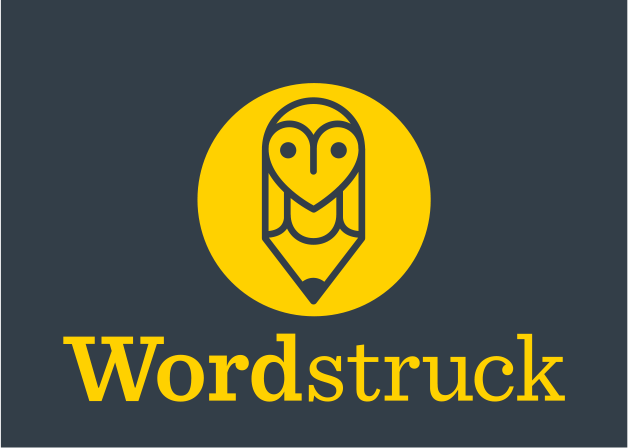Seven successful female leaders on how they achieved their success and how other women can break down any door.
TEN YEARS AGO a female partner of one of the top four professional service firms was invited to attend a dinner celebrating her new partnership. When she arrived, she was refused entry as it was being held at a gentleman’s club.
On seeing her, a senior male partner at the same firm, simply said, “unlucky”, and walked right in. In 2016, the widespread recognition that gender diversity increases productivity and improves the bottom line means that there is an industry-wide commitment to increase the number of women in senior management roles. Here, seven senior female leaders give their hard-won advice on how women can break down doors.
Elizabeth Broderick, former Sex Discrimination Commissioner 2007-2015. Overall 2014 winner of the 100 Women of Influence Awards.
In developing the Male Champions of Change strategy, Elizabeth Broderick believes that our fundamental concept of work needs to be reimagined. “Let’s put talent at the centre and let work wrap around that.”
Once flexibility becomes the starting point the whole conversation changes, says Broderick, who describes the introduction of the all-roles flex initiative as “running like a wildfire” across diverse industries.
Broderick is convinced that the best way to promote gender diversity is the better sharing of paid and unpaid work between men and women.
“If you have more male managers taking primary parental leave this shifts the whole stereotype. That’s what will really help women advance because it sends a strong cultural message that you can be a serious player at work and be a father, whereas any number of women with young children doing that will not change corporate culture.”
In 2001, Broderick was the first partner at law firm Blake Dawson (now Ashurst) to go part time. She had two young children and her mother was dying of leukaemia, and her employer gave her full support.
This flexibility “buys loyalty in a way that money never can”, she says.
Her advice to younger women is to be solution focused. “There are enough people who can tell you what the problem is, not enough people who can explain creatively the solution.”
Theresa Gattung, formerly CEO of Telecom. The first woman to run a large New Zealand public company. Co-founded My Food Bag in 2013.
In the five years since Theresa Gattung has chaired AIA Insurance she’s seen a transformation from “no women on the board and in senior management to half-half”, a trend she sees across the financial services sector in Australia and New Zealand. Gattung believes that what you do is so much more important than what you say. As well as senior women helping bring others through, “you need a mixture of women. Some who’ve got kids, some who haven’t… Diversity within diversity.”
While governance on boards “is fine” it’s also about putting capital to work. “Some men do choose just to do boards but many do things that involve investing money, taking risks, building businesses. I think women tend to be less prepared to do that.”
In part that’s because the image of entrepreneurs is still male. Stepping up as an entrepreneurial role model herself, Gattung co-launched her new business My Food Bag two years ago which now turns over A$60m a year. The fail fast mentality, where you own the learning and move on, is key to success, she says.
Gattung admits she’s always “approached life as a sprint not a marathon”. She now recognises that: “Life is a very long time. You’ve got time to do everything, just not all the same week, though.”
Deanne Stewart, CEO of Metlife Insurance, with 20 years of experience in the financial services sector in Australia and internationally
After 11 years working in London and New York, Deanne Stewart was surprised at how blokey Australian corporate culture was when she returned in 2007.
“Many people talked about this myopic, quarterly-return, aggressive, cost-cutting type of working environment; some even used the word toxic.”
This determined the next steps in her career path.
“I wanted to run a company and create an environment which is fun and caring but where you’re very clear about your goals and what high performance looks like.”
Fast-forward and Feldman has a leadership team handpicked for its diversity. The result: a turnaround in culture and more innovation.
Stewart thinks that for women to attain and sustain senior roles, there needs to be a 50/50 split at home, not just at work. What’s crucial are “constant conversations” with your partner.
In the workplace it’s not only about doing a good job.
“You’ve got to have an understanding of the commercial acumen and the P&L of a company.”
It’s also about actively finding sponsors as they “are sitting around tables determining succession planning”.
Lastly, Stewart urges women to be courageous in their career choices.
Terri Janke, lawyer and founder of Terri Janke and Company. Finalist in Telstra NSW Business Women’s Awards 2015
Terri Janke encourages younger women to become clear on their personal values and align their career with them and spend time writing out goals.
Once you’ve strategically looked at your path and managed the risk, you need resilience. Regular training helps, as do formal and informal mentors.
Janke has found her board positions helpful in learning financial skills and advancing her position as a director.
“I get to see how other board members think strategically. These people are better than an MBA especially when dealing with a crisis.”
Seeing firsthand how bigger businesses work has had a direct “flow on effect” in her own business while widening her client base.
As an Indigenous woman, she finds the biggest challenge is getting pigeonholed.
“I always felt I had to try even harder to prove myself. You feel you have to overcompensate so it’s been about developing that confidence and not doubting myself for being Indigenous and for being a that. Persistence is the thing.”
Kerry Doyle, CEO of Heart Foundation, recipient of Public Service Medal for Services to Science and Medical Research
As a mother of five, working in a male-dominated profession, Kerry Doyle says that wherever you are, find a champion.
“It’s critical for some of those champions to be men. You’ve also got to find role models, somebody who looks like you that you can believe you can be.”
And if you’re the only woman?
“Don’t be afraid to be a pioneer.”
Doyle says when she started out it was almost impossible for employers “to conceive of someone with a large family having a career”. She doesn’t like to say that her “partner has been supportive, it sounds like they are doing us a favour. My time is as equal to his.”
To get ahead, she urges women to “be very self-aware”, gain experience in public speaking and presentation; and develop a virtual network through LinkedIn, Twitter with like-minded women.
“Back yourself. If you’re offered an opportunity, take the risk.”
Jane Halton, Federal Department of Finance secretary, former secretary of the Department of Health and the first woman to hold both these roles
Jane Halton didn’t start out thinking she was going to be a secretary of a department, but once in “striking distance” she thought she could do those jobs “as well as the chaps” in charge.
“You always want to work with someone from whom you will learn — somebody who is different to yourself and looks to be an expert.”
And when things go wrong, don’t crumple at the first knock.
“Often it’s not the making of the mistakes, it’s how you recover and learn that will be most formative. When I’m recruiting, theory is fine, but I want people who have had their feet in the fire and continued to walk afterwards.”
Halton says that even though she loves her work, her life isn’t defined by it.
“When I am home, I am at home.”
She likes to reflect on the day, how it’s gone and could have gone better. Her policy is always to ask if she doesn’t understand, to communicate, and to be inclusive in her conversations.
“I don’t think you can have a dialogue about a genuinely equal relationship between men and women if you don’t have men as part of that conversation.”
Norah Barlow, formerly the CEO of Summerset Group Holdings Limited, which became a NZX 50 company
Norah Barlow says that in her career, she hasn’t had other women around at all: “The people I’ve looked up to, my peers and my bosses, have always been men but I’ve never felt judged.”
When she was on the NZX 50 Index, she was the sole female CEO.
She never “pretends to be anybody” other than who she is. She thinks that too often women try and emulate men.
“Women in general are more consultative, wanting to make decisions from a big base of information, but men are more inclined to be quite speedy and make their decisions off limited information. Women try and act like that, instead of adhering to their natural principles.”
Whatever you do, she says: “think and act like you are in management from early on. Never think that a job is beneath you. Get into what you are doing as if you own it, as if you are it, then people respect what you are doing.”•
Download the article PDF: Seven female leaders share their stories of success

